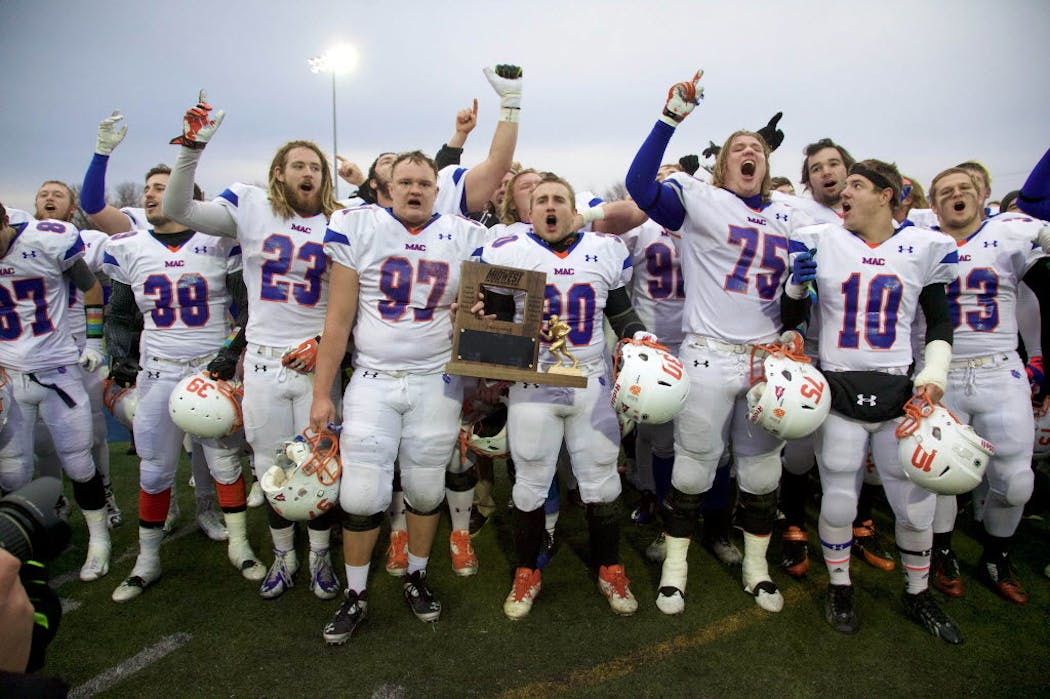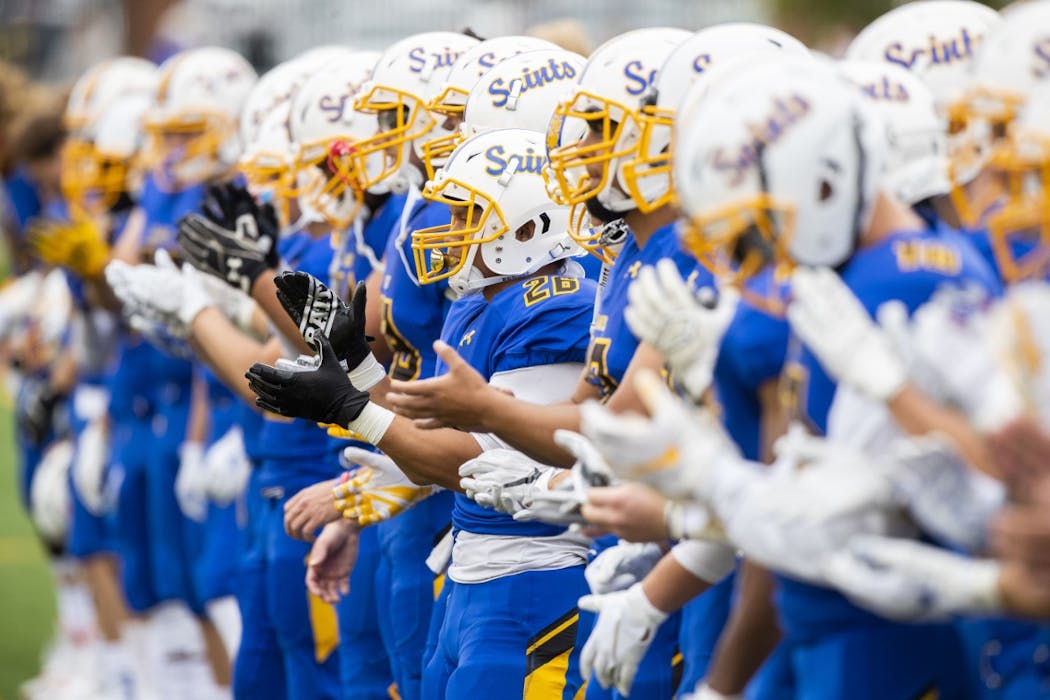A year after forcing out one of the league's founding members, the Minnesota Intercollegiate Athletic Conference (MIAC) on Wednesday brought back an old friend to play football, added a newcomer to join for all sports, and revamped its football alignment to include division play and a conference championship game.
Returning is Macalester, a charter member that pulled its football program from the NCAA Division III conference because of competitive reasons following the 2001 season. Joining the MIAC is the College of St. Scholastica, a growing school in Duluth that will bring 20 sports, including football, to the league.
The moves will begin with the 2021-22 season and are aimed to fill the spot left by the ouster of St. Thomas, which is pursuing membership in an NCAA Division I conference.
"There is safety in numbers, but also there is that stability factor in bringing in like institutions that all are under that same mission of providing a great education but also trying to provide an amazing opportunity to compete in collegiate athletics,'' MIAC Commissioner Dan McKane said.
Wednesday's announcement was met with excitement from Macalester athletic director Donnie Brooks.
"It's good to be back, and for Macalester it's great to be back in a position of strength,'' he said. "We left the MIAC in a tough spot, whether it was roster numbers and facing years and years of challenges.''
From 1972 through 2001, the Scots football program finished last in the conference 21 times and went winless in league play in 15 seasons. Macalester left to become an independent from 2002-13, with its other sports remaining in the MIAC, before joining the Midwest Conference for football in 2014. The Midwest Conference did not renew the Scots' membership past the 2020 season, so Brooks had to find the program a new home. "To me, home is the MIAC,'' he said.
His coach, Tony Jennison, relishes the opportunity.
"It was in the back of my mind that if I did a good job here and we were able to have some success, wouldn't it be great to bring it back to the MIAC where its historical roots are?'' he said.
The Scots won't face the travel challenges posed by the Midwest Conference, whose other members are in Illinois, Iowa and Wisconsin.
"We may play 10 minutes down the street several times,'' Brooks said.
McKane considers the addition of St. Scholastica in the same positive light. It gives the MIAC a presence in Duluth and enables it to move to two divisions for football.
The new MIAC football alignment will feature the Skyline Division (Augsburg, Bethel, Concordia Moorhead, Hamline and Macalester) and the Northwoods Division (Carleton, Gustavus Adolphus, St. John's, St. Olaf and St. Scholastica). Teams would play two nonconference opponents, the other four teams in their division and three crossover games with the other division. Championship Week will feature the Skyline and Northwoods winners squaring off for the league title, with the teams in second through fifth place in opposing divisions also meeting.
"It's really going to invite a great atmosphere as we close out the football season,'' McKane said.
The commissioner also likes the growth St. Scholastica has shown.
"St. Scholastica has had a history of expressing interest in the MIAC for the last 25 years,'' he said. "… Over time, they've become really strong in a lot of their sports and expanded their sports offerings.''
The Saints have been in the Upper Midwest Athletic Conference since 1995, and they've have won the past 11 all-sports titles. In football, they reached the Division III playoffs five straight years from 2011-15, but lost by an average score of 51-6, including once each to St. Thomas, Bethel and St. John's of the MIAC, so the new league will be a test.
"We were really pleased when we were approached by the MIAC,'' St. Scholastica athletic director Franco Bari said, later adding, "our football staff is really excited about the move and the new challenges that are presented for them."

Want to share info with the Star Tribune? How to do it securely

'Safe recovery sites' would offer syringes, naloxone and more to people using drugs. The plan could be in peril.
New Minnesota GOP leaders seek peace with party's anti-establishment wing

Who is Republican Lisa Demuth, Minnesota's first House speaker of color?





